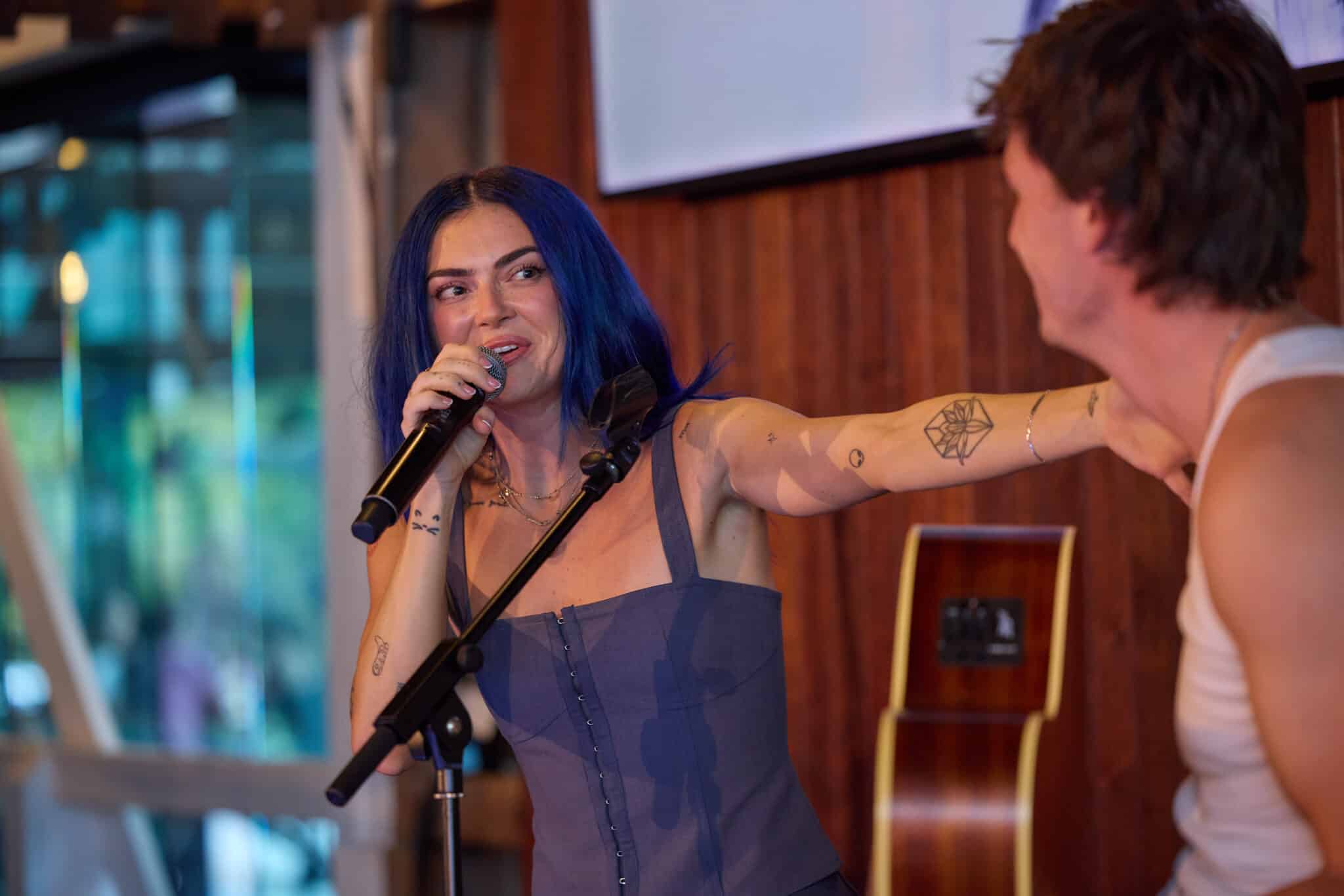Our Terms & Conditions | Our Privacy Policy
Music’s New Era Is Intimate, Personal & Fan-Driven, Brands Need To Keep Up
Australia’s live music scene is in flux, and so are the expectations of fans. According to new research from BRING – Universal Music for Brands, 74 per cent of young live music fans plan to attend more live music events in 2025 than they did in 2024. But the big headline isn’t just that more people are heading to shows. It’s which shows they’re choosing, and what they really want from the experience.
At the Cairns Crocodiles, a powerful session titled Brands in the New Live Music Era: Adapting to a Changing Scene brought together artist Charley, top strategists and marketers to unpack what comes next for music culture, and what it all means for brands.
The session explored key findings from BRING’s new study The New Gig Economy, which paints a clear picture: the multi-day mega festival is falling out of favour, and fans are flocking to smaller, more curated events that reflect their personal tastes and values.
BRING’s James Griffiths presented the research, noting that 63 per cent of Australian live music goers said they are at their happiest when attending a live music event.
That emotional resonance has made live music an incredibly powerful platform, but it’s one that requires a deeper level of understanding from brands hoping to participate.
The data also showed that only 40 per cent of Australians overall intended to attend weekend festivals in the year ahead, and just 37 per cent of 16–24-year-olds. In contrast, 60 per cent of 16–24s plan to attend concerts and gigs, with day festivals also outperforming multi-day ones.
Perhaps most importantly, 80 per cent of live music goers say they prefer events that are catered to their specific tastes.
“Music is deeply personal again,” said Griffiths. “There is a genuine value exchange for brands but so many don’t ask those questions. They don’t sit down with artists and say ‘how can we help you.’”
That disconnect is reflected in the sponsorship data: while 79 per cent of live music fans would like brands to connect with them in real life, 58 per cent say they don’t even notice who the sponsors of an event are. In other word, brands might be showing up, but not in ways that feel meaningful to audiences.
Enter Charley, one of Australia’s rising pop artists, who shared personal insight into how today’s fans want more than a logo on a stage. They want connection.
“Music has always been the one thing I lose time with,” she said. “It’s therapy for me to be able to write, get that all out and connect with random people who have been through the same thing, it creates this whole family that supports each other around the world.”
 Charley & her guitarist Will.
Charley & her guitarist Will.
She emphasised how vital it is for artists to build community, and how much support from brands can help. “For all my tours, you have to try and find the money and I had brand sponsorships. I was so grateful because I was able to have a full brand and put on a full show.” But she was quick to clarify that support shouldn’t come with strings that limit creativity or authenticity.
Charley’s philosophy on fan connection is simple: meet people where they are and make them feel seen. “Fan culture is rising so rapidly. Everyone is becoming fangirls again,” she said.
Gone are the days when artists were untouchable idols. “Everyone used to be unreachable, now they are reachable, it’s better to be closer with them and show your real personality.”
That intimacy and accessibility is exactly what today’s audiences crave, and according to the panel, it’s something brands need to understand if they want to stay relevant.
Tim Farmer, chief marketing officer at DiDi, knows first hand how important integration with music culture is.
He made it clear that slapping a brand name on a stage isn’t enough anymore. “A festival doesn’t exist in isolation,” Farmer said. “The value exchange historically is the brands pay to help put on the event. As a consumer, fans don’t usually see that. If you want to show up you have to add value consistently.”
That value could come in the form of transport solutions, wellness integrations, exclusive fan experiences, anything that enhances the fan journey.
“We live by the slogan that if Uber takes you home, Didi takes you out… If we are going to say that in our advertising, we need to show that in the real world and add value to the night,” Farmer said.
But crucially, brands need to understand that entering music culture requires time, attention and care. “You need to invest time and show up consistently,” he urged. “If you can’t answer why you are there, you probably shouldn’t be”.
The message from this session was clear: the era of transactional sponsorship is over. Fans want purpose. They want real-world connection. They want artists, and brands, who show up and give back.
And for brands willing to listen, partner meaningfully and show up authentically, the new live music era offers more than reach or awareness, it offers community.

Join more than 30,000 advertising industry experts
Get all the latest advertising and media news direct to your inbox from B&T.
Subscribe
Images are for reference only.Images and contents gathered automatic from google or 3rd party sources.All rights on the images and contents are with their legal original owners.



Comments are closed.